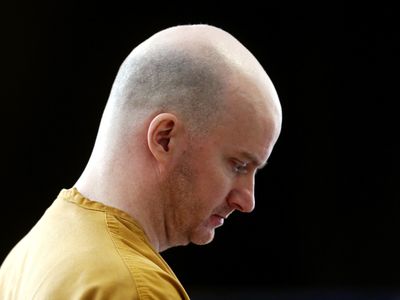(USA TODAY) -- School officials in East Texas didn’t want Kip McFarlin around their students.
For years, he had crossed the line in conversations with teenage girls, using sexually suggestive language and even telling one student he’d date her if he were younger.
By 2005, administrators at Orangefield Independent School District, about a two-hour drive from Houston, had investigated complaints by six different students.
When it came time to deal with the Orangefield High School football coach, administrators didn’t fire McFarlin or report him to police. They didn’t even notify Texas education officials who had the power to take away his teaching license.
Instead, they let him become someone else’s problem.
They hid his behavior from state regulators, parents and coaches.
All McFarlin had to do was go teach somewhere else.
“This incident does not have to end McFarlan’s (sic) career,” school district attorney Karen Johnson wrote in a letter in 2005 to then-superintendent Mike Gentry. In the letter, Johnson recommended the district negotiate “a graceful exit” for the teacher.
Less than two years later, McFarlin, then 38, landed a job at a nearby school district, where no one had any idea about his past problems.
In 2011, he had sex with one of his students, a 16-year-old girl.
Despite decades of repeated sex abuse scandals — from the Roman Catholic Church to the Boy Scouts to scores of news media reports identifying problem teachers — America’s public schools continue to conceal the actions of dangerous educators in ways that allow them to stay in the classroom.
A year-long USA TODAY Network investigation found that education officials put children in harm’s way by covering up evidence of abuse, keeping allegations secret and making it easy for abusive teachers to find jobs elsewhere.
As a result, schoolchildren across the nation continue to be beaten, raped and harassed by their teachers while government officials at every level stand by and do nothing. The investigation uncovered more than 100 teachers who lost their licenses but are still working with children or young adults today.
In the most comprehensive national review of teacher discipline to date, USA TODAY examined educator misconduct and licensure databases from every state, reviewed thousands of pages of court filings and employment records and surveyed state education officials to determine how teachers who engage in misconduct remain in the education system.
Among the findings:
• State education agencies across the country have ignored a federal ban on signing secrecy deals with teachers suspected of abusing minors, a practice informally known as “passing the trash." These contracts hide details of sexual behavior and sometimes pay teachers to quit their jobs quietly. The secrecy makes it easier for troubled teachers to find new jobs working with children.
• Private schools and youth organizations are especially at risk. They are left on their own to perform background checks of new hires and generally have no access to the sole tracking system of teachers who were disciplined by state authorities.
• Despite the risks, schools of all kinds regularly fail to do the most basic of background checks. A private high school in Louisiana hired a teacher who was a registered sex offender in Texas. Students using a simple Web search uncovered his past.
• School administrators are rarely penalized for failing to report resignations of problem teachers to state licensing officials. Though 41 states have laws requiring public school administrators to report the firing or resignation of a teacher to state education officials, violations of those laws rarely have consequences.
At every level, institutions and officials charged with ensuring the safety of children have failed. Lawmakers have ignored a federal mandate to add safeguards at the state level. Unions have resisted reforms. And administrators have pursued quiet settlements rather than public discipline.
This isn’t supposed to be happening.
A series of high-profile abuse cases and media investigations in the 1990s and 2000s put a spotlight on lax regulations by government officials at every level.
A few states, including Florida, Missouri and Oregon, instituted tough laws and regulations to crack down on abusive teachers and publicly report their names. Congress passed a law in December 2015 requiring states to ban school districts from secretly passing problem teachers to other jurisdictions or face losing federal funds. But 45 states have not instituted a ban.
None of those changes closed the gaping holes plaguing the nation’s teacher screening system. Inconsistencies in state background check rules and the lack of a government-run tracking system for serious teacher misconduct continue to hinder efforts to root out problem educators.
“I’m not against what’s been put into law,” said Charol Shakeshaft, a professor of educational leadership at Virginia Commonwealth University who has studied teacher misconduct. “It just isn’t much of a solution.”
The results of the unheeded calls for change have been tragic.


